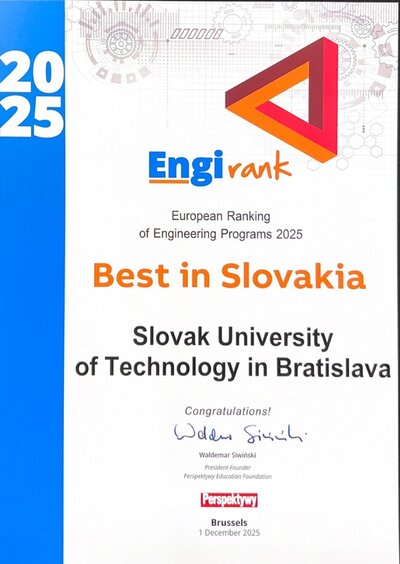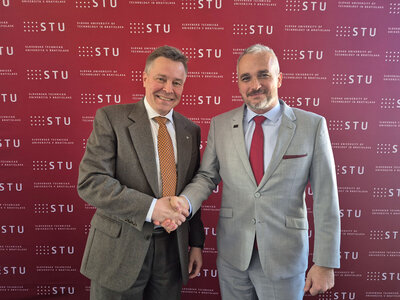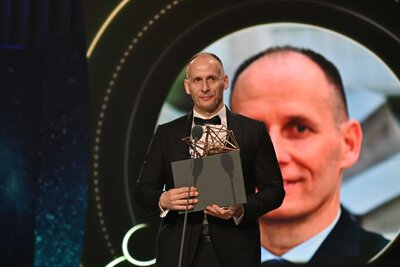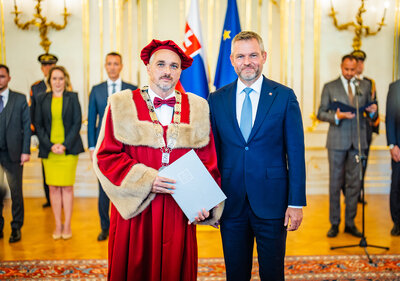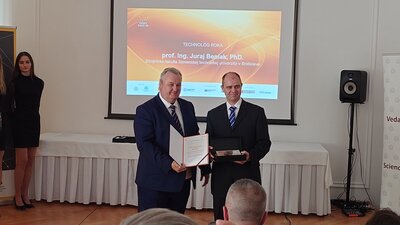The Slovak University of Technology in Bratislava, represented by vice-rector Ľubica Vitková and vice-rector Maximilián Strémy, participated in the 75th Annual NAFSA 2023 Conference and "Education Expo" in Washington, DC. It was the most diverse and comprehensive international education conference and education expo focused on the theme of inspiration for an inclusive future.
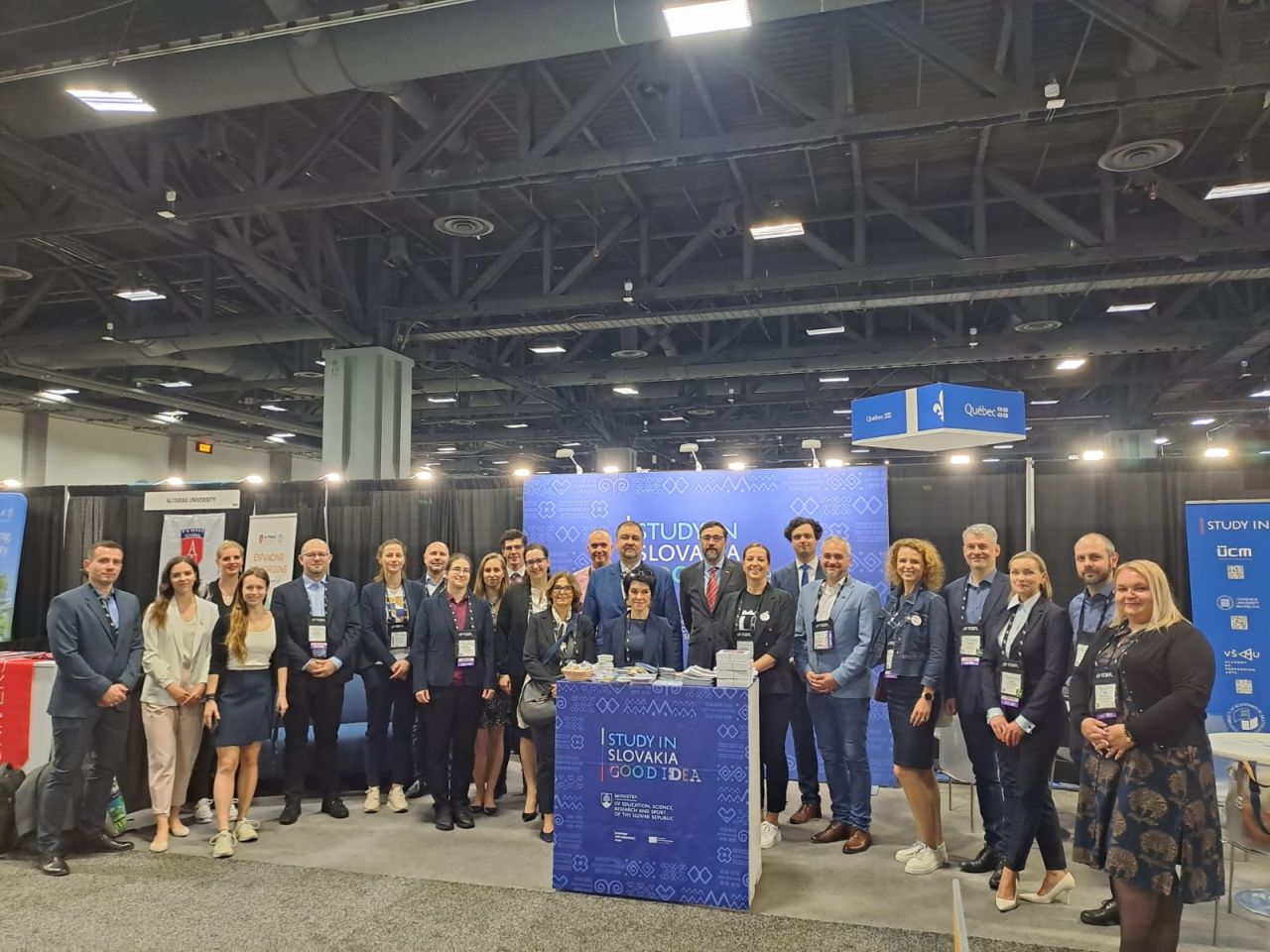
The participation of Slovak universities and colleges at the conference and fair, which was held in the US metropolis from 30 May to 2 June, was ensured and supported by the Ministry of Education and Science. The Ministry made the first national presentation of Slovak higher education at the event under the brand "Study in Slovakia GOOD IDEA". The presentation of Slovak universities was part of the project "Promotion of Slovak higher education and science abroad" in the sense of the national programme document: the Strategy for Internationalisation of Higher Education until 2030 and the Renewal Plan, Component 10, Investment 4.
NAFSA is the world's largest association dedicated to international education and mobility programmes. The event featured educators from more than 100 countries around the world who presented the latest innovations, proven strategies and best practices at their universities. This created a space for the creation of institutional partnerships to help build a more inclusive future, according to the event's motto.
NAFSA is the world's largest association dedicated to international education and mobility programmes. The event featured educators from more than 100 countries around the world who presented the latest innovations, proven strategies and best practices at their universities. This created a space for the creation of institutional partnerships to help build a more inclusive future, according to the event's motto.

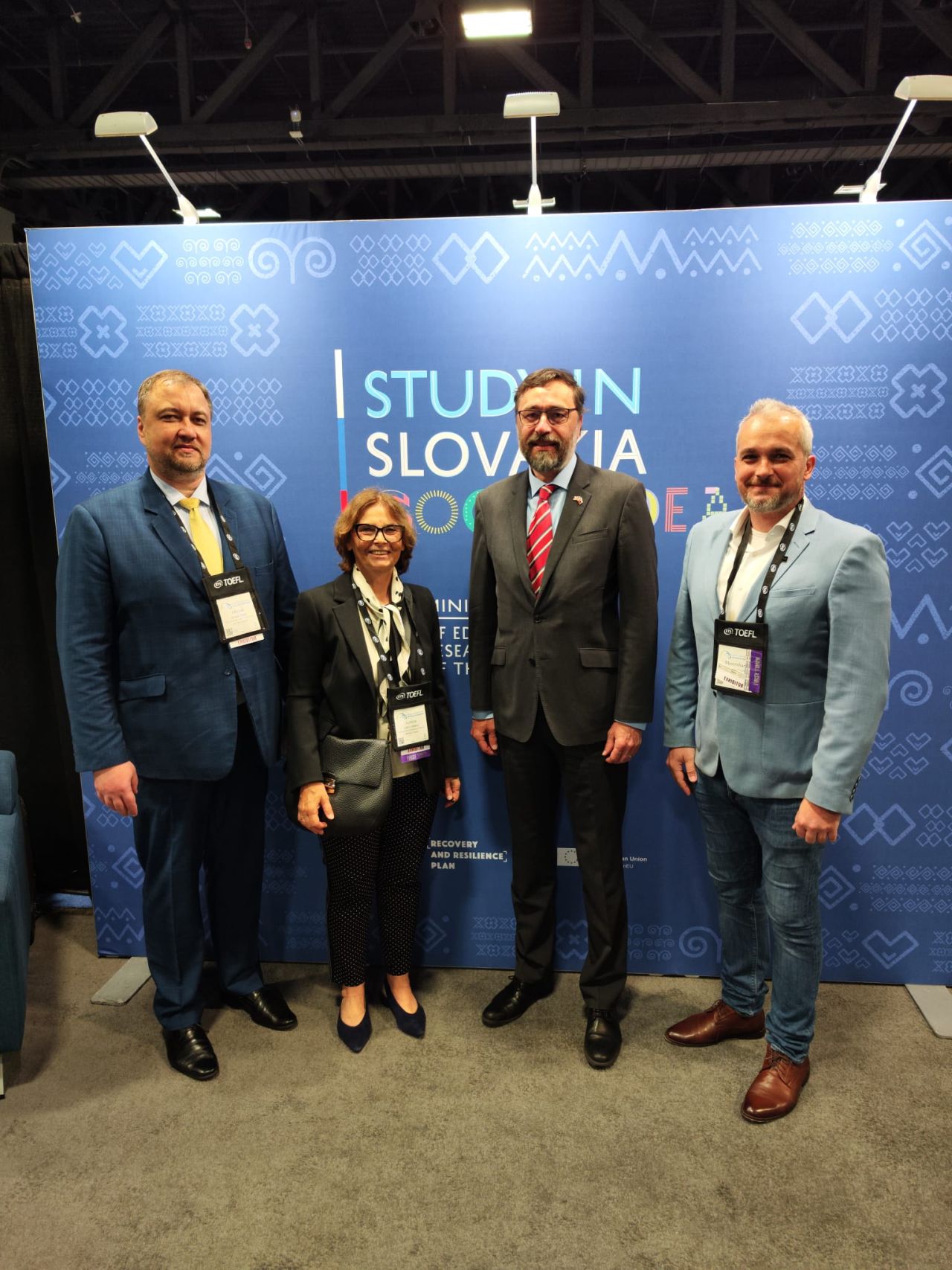
"Participation in the event was an opportunity for STU to establish new partnerships and networks as well as to develop existing ones, because they are very necessary for the success of any institution and thus also for the professional success of its students, teachers and researchers," said Ľubica Vitková, vice-rector of STU.
"Some starting points for joint project and innovation activities have been agreed on the spot. The meetings with our graduates working at different levels at American universities were interesting. One of them is also a FCHPT alumna, Professor Ivica Labuda, who is working as Biotechnology Program Director at Georgetown University, and we have already been able to convey interesting opportunities for our faculty and the University to collaborate with her and her colleagues," added vice-rector Maximilian Strémy.
At the fair, representatives of our university presented the opportunities to study in English and the key topics of research at STU. The vice-rectors of STU established contacts with representatives of schools from South Korea, Taiwan, Brazil, Argentina, Canada, USA, Great Britain, Germany, France, Spain, Sweden and Turkey. The event was also used for personal meetings with representatives of universities associated with the EULiST consortium.
"Some starting points for joint project and innovation activities have been agreed on the spot. The meetings with our graduates working at different levels at American universities were interesting. One of them is also a FCHPT alumna, Professor Ivica Labuda, who is working as Biotechnology Program Director at Georgetown University, and we have already been able to convey interesting opportunities for our faculty and the University to collaborate with her and her colleagues," added vice-rector Maximilian Strémy.
At the fair, representatives of our university presented the opportunities to study in English and the key topics of research at STU. The vice-rectors of STU established contacts with representatives of schools from South Korea, Taiwan, Brazil, Argentina, Canada, USA, Great Britain, Germany, France, Spain, Sweden and Turkey. The event was also used for personal meetings with representatives of universities associated with the EULiST consortium.

The panels featured many ideas related to the conference theme - the role of international education in addressing social, economic, and environmental justice; evaluation of existing and practices for creating virtual, face-to-face, and hybrid programs; and programs that promote the health and well-being of students, faculty, and staff in the international education community; innovative approaches to managing crises, minimizing academic barriers, and addressing ethical challenges related to global trends; research in international education as a catalyst for an inclusive future; the integration and creative use of technology in international education programs; managing the career advancement of students and staff in a changing labor market; new models for comprehensive, ambitious, and inclusive internationalization of higher education; and much more.

